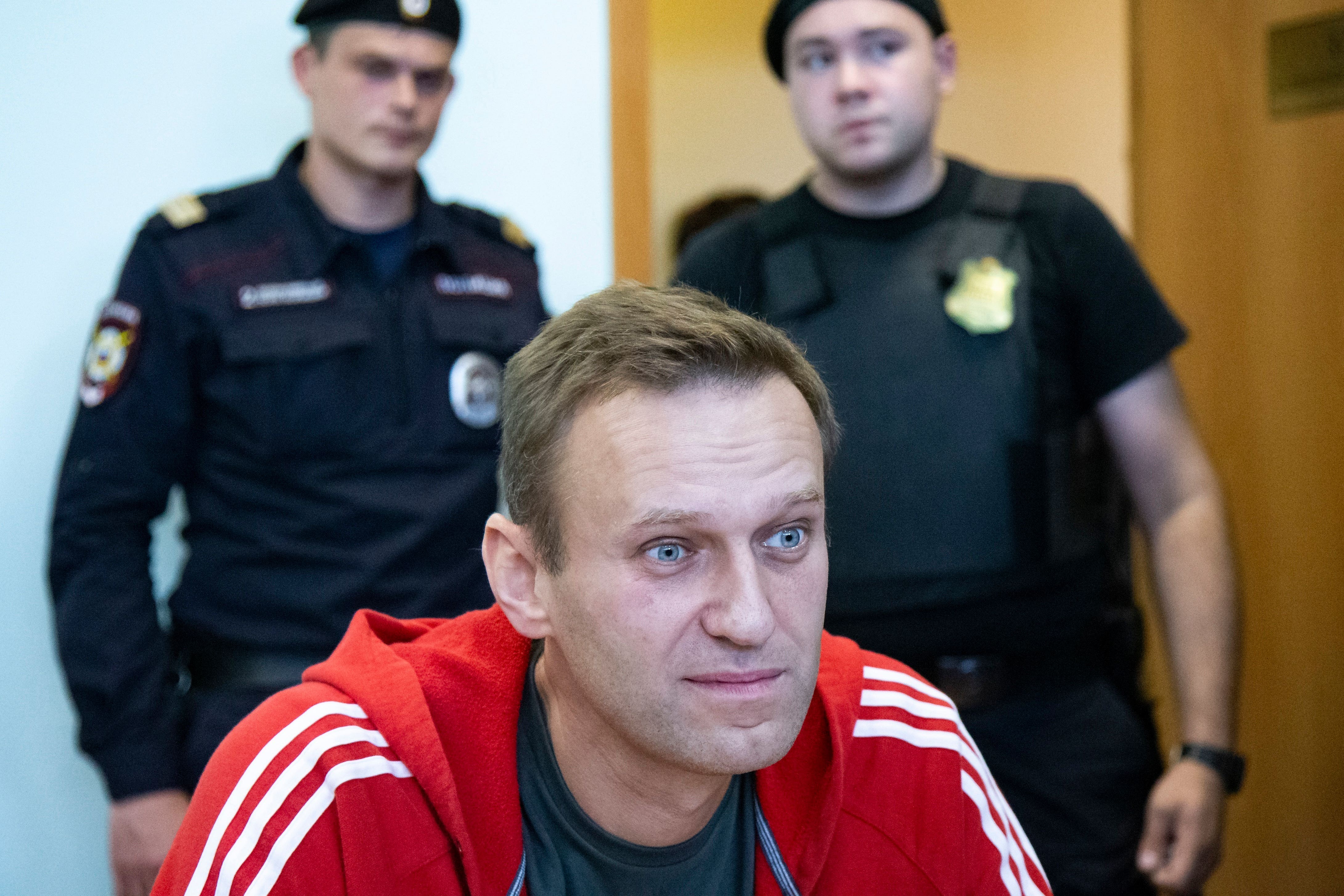Sunak pays tribute after death of Russian opposition leader Alexei Navalny
Mr Navalny, one of Vladimir Putin’s most prominent and persistent critics, had been behind bars since January 2021.

Rishi Sunak has paid tribute to the “fiercest advocate for Russian democracy” after the country’s prison agency said jailed opposition leader Alexei Navalny has died.
The UK Prime Minister said the death of Mr Navalny, one of the most prominent and persistent critics of Vladimir Putin, was a “huge tragedy” for the people of Russia.
Moscow’s federal prison service said in a statement that the politician, 47, felt unwell after a walk on Friday and lost consciousness.
An ambulance arrived to try to rehabilitate him, but he died, the agency said.
There was no immediate confirmation of Mr Navalny’s death from his team.
In a post on X, formerly Twitter, the Prime Minister said: “This is terrible news.
“As the fiercest advocate for Russian democracy, Alexei Navalny demonstrated incredible courage throughout his life.
“My thoughts are with his wife and the people of Russia, for whom this is a huge tragedy.”
Tributes came from across the political spectrum in the UK, with Labour leader Sir Keir Starmer saying: “Alexei Navalny showed incredible, impossible courage in his fight for Russian democracy.“His death is terrible news for the Russian people. My thoughts are with his friends and family, as well as his supporters across the world.”Liberal Democrat leader Sir Ed Davey said: “Putin’s despicable methods might be to kill his enemies, but he will never kill the light of freedom and democracy which Navalny has stood for so courageously.”
Mr Navalny, who campaigned against official corruption and organised major anti-government protests, has been behind bars since January 2021.
He was arrested on his return from Germany where he had been recuperating after a nerve agent poisoning that he blamed on the Kremlin.
Mr Navalny had rejected all charges against him as being part of a politically motivated vendetta.
Since the start of his imprisonment, he remained a thorn in the side of Mr Putin via scathing attacks that his associates posted to social media.
Kremlin spokesman Dmitry Peskov says Mr Putin was informed of Mr Navalny’s death and the prison service was looking into the death in line with standard procedures.
Mr Navalny’s spokeswoman, Kira Yarmysh, said on X that the politician’s team had no confirmation of his death so far and that his lawyer was travelling to the town where he was held.
He had been moved in December from his former prison in the Vladimir region of central Russia to to a “special regime” penal colony, the highest security level of prisons in Russia, above the Arctic Circle.
His allies decried the transfer to the town of Kharp, in the remote Yamalo-Nenets region notorious for its long and severe winters, as yet another attempt to silence Mr Navalny.
Mr Navalny was convicted in 2013 of embezzlement, but later the prosecutor’s office surprisingly demanded his release pending appeal, after which a higher court gave him a suspended sentence.
Many observers attributed his release to a desire by authorities to add a tinge of legitimacy to the mayoral election in Moscow, in which he had registered as a candidate.
Mr Navalny ultimately finished second in the contest, which was seen as an impressive outcome as the incumbent had the backing of Mr Putin’s political machine.
When the Russian President has spoken about Mr Navalny, he has made it a point not to mention the activist by name, referring to him only as “that person” or similar in an apparent effort to diminish his importance.
Mr Putin recently launched a presidential campaign for his fifth term in office.
He is already the longest-serving leader in Moscow since Soviet dictator Joseph Stalin.
Bookmark popover
Removed from bookmarks